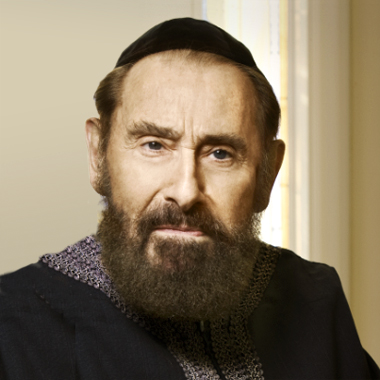
This Shabbat is traditionally known as Shabbat Nachamu, the Shabbat of Consolation, where God tells us that we shall be consoled.
Does this mean that we are now consoled? The Zohar says that we find the consolation in the beginning of the reading in Va’etchanan where the Bible says, “Moses pleaded to God to permit him to lead the Israelites into the Promised Land.”
"What can we learn from this stubbornness of Moses?"
What was Moses’ intent here? He already knew that he could not enter into the Land of Israel; he had been told by God. Moses did not find any consolation in the fact that God instructed him to appoint Joshua in his stead. Moses wanted to lead the Israelites. He did not stop begging, even after God had already refused to permit him to lead the Israelites into the Promised Land.
What can we learn from this stubbornness of Moses, who refused to take no for an answer? What was this all about and what is this relationship to nachamu, or consolation? The Zohar says that when Moses refused to accept this answer, even though it was God’s word, he is teaching us a great lesson about resignation. Most of us, at least one time or another in our life, have resigned ourselves to a condition we think cannot be altered, cannot be changed. This has been our biggest problem. We need to understand that all physical, natural chaos can be altered and can be restored, returned to perfection. The physical reality is subject to change through mind over matter.
The Zohar explains that when Moses said, “I want to go into the land of Israel,” he was not resigning himself to the physical illusion; that is the consolation. This means that even if the Temple was destroyed, there is no reason why it cannot be restored. Anything of a physical reality can be altered, changed, and restored. However, it takes time to accept improvement. The world is not prepared to accept that the physical reality can be altered.
Physical matter does not disappear; the power of the Lightforce of God is ever present. This is substantiated when God tells Moses, “Whenever you call upon Me I will answer.” But, if that is so, how come we have had as many situations over the past few thousand years where we have not seen the response? The evidence seems to point to the fact that God never answers us. Once in a while we experience a miracle, but those are few and far between.
"When we call upon the Lightforce of God It responds immediately."
The Zohar says that no matter what happens, when we call upon the Lightforce of God It responds immediately. However, just as it takes disease or other forms of chaos many years to manifest, so too, when we call upon the Light to reverse a situation that seems irreversible, it also happens the same way - it takes time. But we have no patience when it comes to the response of God. When we pray to God, God will respond but we do not see it because we expect it now. We are the instant generation. This has been going on for 3400 years. We call upon God and we expect things to change immediately, and if it does not, we think it will not happen.
The Zohar says no, it has already happened in the Tree of Life Reality; it is in our world that we have to work on it, we have to earn it. This is our effort. When we ask God for a miracle, we need to ask ourselves - did we earn it, did we use the methodology required to bring the power of the Lightforce into the situation? It will not come without the effort on our part. The Zohar says that the mere fact that we have requested it means it has already happened, but we have to make the effort for it to manifest in our world so that there is no aspect of Bread of Shame. This is why the Zohar is so powerful; it teaches us the structure of this universe, as well as how to understand the kind of effort we have to put in to change things. Moses did not give up, even though it was God who said no, because he knew that the decision was based on a physical reality plane.
This Book of Deuteronomy relates to our level of Malchut where we aspire to have the reward of that Flawless Universe of Zeir Anpin, the Tree of Life Reality. And if this seems like an impossibility, if we have any doubts, we are giving in to the physical illusion.